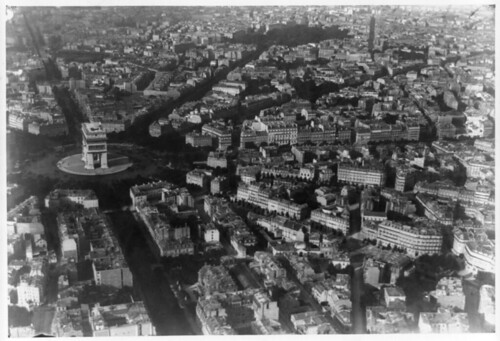Baron Haussmann (1809 – 1891) turned 200 today.
Haussmannwas a French urbanist who called himself an “artiste démolisseur,” literally translated as artist destroyer, a concept with a political equivalent of creative destruction. I’ve mentioned Haussmann and Haussmannization here [1] and here[2].
Haussmann’s renovation of Paris is often simply referred to as Haussmannization, connected to the notion of creative destruction, a political concept.
The notion of creative destruction is found in the writings of Mikhail Bakunin, Friedrich Nietzsche, and in Werner Sombart‘s Krieg und Kapitalismus (War and Capitalism) (1913, p. 207), where he wrote: “again out of destruction a new spirit of creativity arises”. In Capitalism, Socialism and Democracy, the Austrian economist Joseph Schumpeter popularized and used the term to describe the process of transformation that accompanies radical innovation. It contrasts with various tactics of preservation and embalming the past.
Interestingly, Flaubert’s friend Maxime du Camp said:
- “Paris, as we find it in the period following the Revolution of 1848, was about to become uninhabitable.” — [Paris Arcades] quoting from Maxime du Camp, Paris, vol 6 (Paris, 1875), p.253.
and
- “Its population had been greatly enlarged and unsettled … and now this population was suffocating in the narrow, tangled, putrid alleyways in which it was forcibly confined.” — [Paris Arcades] quoting from Maxime du Camp, Paris, vol 6 (Paris, 1875), p.253.]
It was Jules Ferry who wrote “Les Comptes fantastiques de Haussmann,” his indictment of the bold handling of public funds for the Haussmannization. It was published in 1867, its title being a play on words between contes, stories or tales – as in Les contes d’Hoffmann or Tales of Hoffmann, and comptes, accounts.


Hausmann has become a creator/destructor of another kind as well – to a lot of today’s city planners, at least of the New Urbanism kind, he’s their profession’s Shi Huang Di. The Hausmann ideal is, like the “market” in neo-liberalism, a totally constructed thing that has been accepted as natural and the base. People want to live in 19th-century grid-and-hub cities, they claim. Any attempt to change it (from Camillo Sitte onwards) is seen as tamering with the natural.
Now I have to find out who is Shi Huang Di?
I was going to point out his tremendous influence worldwide, for good and ill. Maybe mostly ill, since his work became a style to be imposed on any city. I haven’t been in Paris for many years, but when I recall it now, look at pictures, and compare it to places I have been, I find it funny that it is considered THE romantic city. Hausmannization is the very opposite of that!
Shi Huang Di was the first emperor of China, famous for burning all the books of scholars and historians before his time to make it appear he was the origin. (Oh, and he also united the country and built those famous teracotta warriors and ushered in a new golden age and stuff, but I was alluding to the first thing.)
Lichanos, Birdseed,
Thanks for your comments. I’am afraid I have to disagree, I think the wide boulevards and the uniformity of cities such as Paris and Barcelona is romantic. I like big architectural projects. You can’t make an omelette without breaking eggs. In Antwerp, Belgium where I live, I live in the South neighborhood, which was built according to Haussmannian lines, and I love it here. I love the wide-open space and the grandeur of it all. That is not to say I do not like the old city, which also definitely has its charms (but one I can find in the old center of any European city), but the sheer exuberance of the landscaped city of Paris overwhelms me whenever I come there.
And to cure altstadt nostalgia, the lure of gabled half-timbered houses and cobblestone markets, let us design copy-cat places outside of the city to mimic them, like Fantasylands in Disneyland. A bit in the same manner that Umberto Eco proposed to rebuild the Colloseum outside of Rome.
And lastly,
Let us not forget that the housing of Lutetia was anything but romantic! In the words of Maxime du Camp, in my original post, but I will repeat them here:
I think the wide boulevards and the uniformity of cities such as Paris and Barcelona is romantic. I like big architectural projects. You can’t make an omelette without breaking eggs.
I wasn’t saying it is without its appeal, or even that I don’t like it. I do, for all the reasons you mention: grandeur, wide open, the pleasures of order and uniformity, etc. But that is not what I think of when I think of Romantic style. Just something quirky in our cultural dictionary…I’m sure the Baron saw himself as a classicist.
Hmmm…omelette and eggs… I guess it’s a widely used expression, but I associate it with Robert Moses of NYC – it was a favorite of his – and he was VERY influenced by Hausmann, but maybe not in a good way. (cf. The Power Broker by Robert Caro)